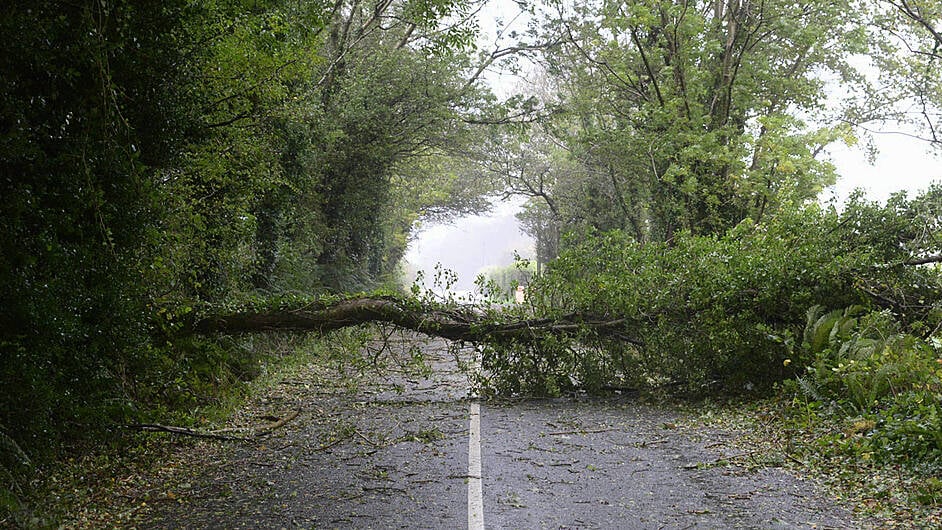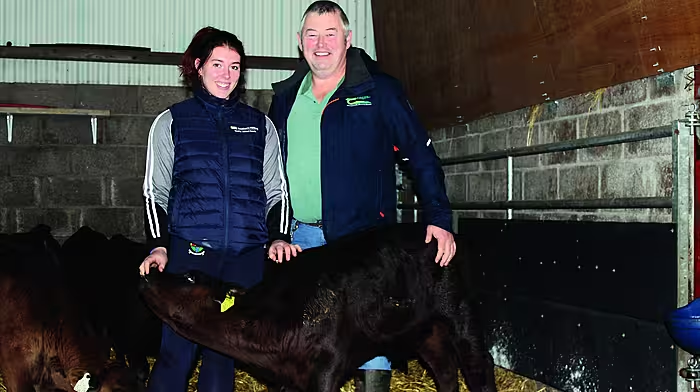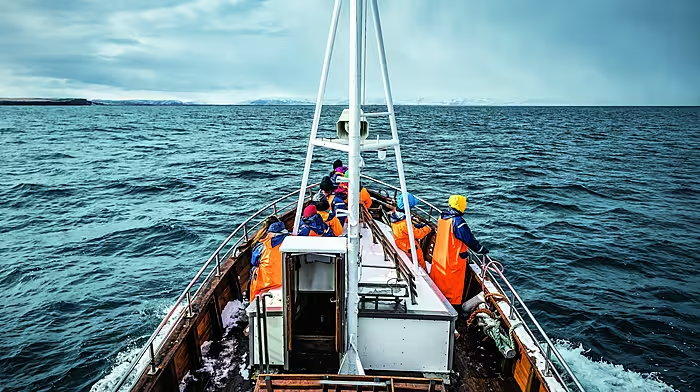WILD fires in Australia and shrinking polar ice caps catch the global headlines, but West Cork towns are also on the frontier of climate change.
In the last decade, the region has become wetter and warmer. People have experienced more frequent and more intensive storms. From Dursey Island to the Old Head of Kinsale, the land is absorbing 18 extra days of rainfall a year.
Floods, like the recent ones in Bantry and Bandon have become more common, more destructive and more unsettling. More people realise that climate change is upon them. Unfortunately, it is going to get worse. By the time the children who started national school this week come to collect their pensions, intense storms will happen twice as often as they do now.
Sea level will have risen, possibly up to half a metre. Humans have injected huge amounts of heat-trapping carbon dioxide into the atmosphere. The resulting warmer air and more moisture have revved up the storm engines in the Atlantic Ocean.
This leads to increased risks of flash floods, torrential rain, high winds and a trail of destruction.
Climate change impacts differently in different places and the environment of West Cork has its own distinctive response. Its geography and natural topography means that it acts like giant a ‘Welcome’ mat for Atlantic storms. Its hills, bogs, fields, soil, streams and rivers act as the First Responders to heavy storms, processing vast quantities of water and energy. Our ancestors knew this very well. Bantry, for example, was historically located on a position on the coast to shelter it from the brute force of the Atlantic south-westerlies.
But now global warming means that the relationship between climate and landscape is changing.
The whole drainage system is stressed. Starting now, many of the settlements and much of the infrastructure historically built under one climate regime will have to be adapted to cope with demands of a new one.
The bitter pill of climate change is difficult to sweeten, but we are not simply victims of our geography. We have always learned to adapt, make the best of it and to thrive.
Cork County Council has received some criticism about for being tardy in upgrading drainage and putting a flood defence scheme in Bantry.
But while mopping up after floods is painful, to say the least, the Council is going to be the key agency to lead and deliver on climate adaptation in the county. The scale of this, the costs involved and the politics of making it happen should not be underestimated.
Cork has 1,094 km of coastline, hundreds of bridges, miles and miles of coastal road and river banks. We are fortunate that the Council is seriously tuned into the challenge of climate change.
The county’s climate adaptation is world-class in terms of its clear-eyed assessment of the hazards in the region. But climate adaptation is a social and political thing. As much as it will rely on environmental and engineering know-how, more sustained and persistent involvement from local people in shaping change is a must.
All across West Cork, initiatives like ‘Green Skibbereen’ and ‘Transition Town Kinsale’, illustrate that that people are acting on more sustainable living and working. But change brings challenges and conflict will come.
For instance, it’s likely that if the high ground overlooking Bantry town was forested, the town would most certainly be in a better position to manage flooding. But as is the case all over the region, any new schemes for forestry are riddled with controversy.
Local communities need to get better at resolving environmental questions like this if they are not going to get washed out, because nature is not waiting.
At the same time, climate change is not an emergency.
Solutions can be measured and well-judged.
The solution for Bantry is amongst the most complex in the country.
Managing culverts and subterrainean streams will help immediately but to ensure long-term protection, the hydrology of the town and its hinterland need very careful study.
And when it happens, flood defences need to contribute to overall well-being and place-making. Concrete has to give way to natural solutions when they work as well and more sustainably.
A new deal with our climate and environment is needed. Whether you are retired, still at school, farming, fishing, doing shifts in a local factory, running a B&B or a sports shop, or remote working for a large corporation, everyone has a stake.
Like the lighthouses on its coast which led mariners to safety for generations, the goal now should be to make West Cork a beacon for the best climate change adaptation and nothing less.
West Cork is on the climate change frontier now.
• Denis Lenihan is a senior lecturer in Geography at UCC.







